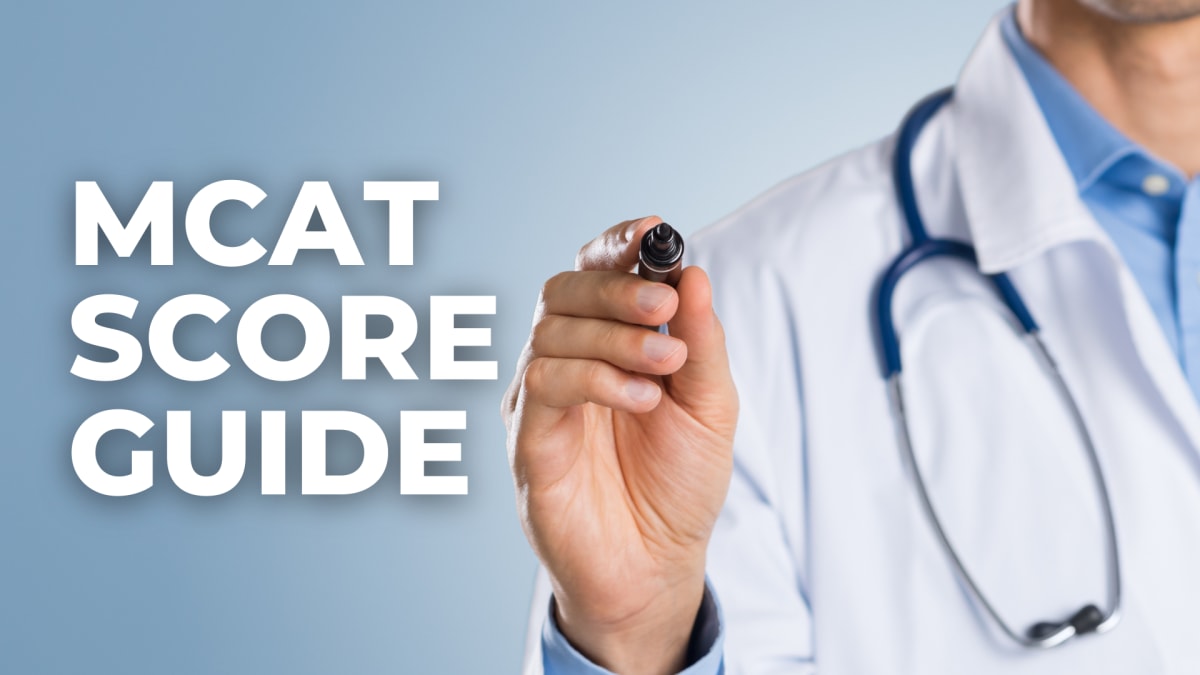If you are an aspiring medical student, you may be nervous about taking the MCAT (Medical College Admission Test.) It is just one part of an overall med school application, but the MCAT can be a daunting prospect for many students. For one thing, there is no set passing score for this seven-and-a-half-hour exam, so students may be confused about what constitutes a good score, and what they need to achieve to measure up to the expectations of the medical schools they hope to attend.
Before we talk about MCAT scoring, let’s reiterate what you have doubtless been told many times along the way to the MCAT. This test is not the defining factor that determines whether or not you will be admitted to medical school. Your GPA, the academic effort you’ve put into strong prerequisite classes, your impressive extracurricular activities, and your glowing letters of recommendation will all play a role in determining whether or not you get into your school of choice. This doesn’t mean it’s not important, though. You should still strive for the highest MCAT score possible, retaking the exam if necessary to boost your results.
The MCAT is made up of four different sections, each with their own subsections. The four sections are:
• Chemical and Physical Foundations of Biological Systems (CPBS)
• Critical Analysis and Reasoning Skills (CARS)
• Biological and Biochemical Foundations of Living Systems (BBLS)
• Psychological, Social, and Biological Foundations of Behavior (PSBB)
Your scores across all of these sections will result in a scaled score that takes into account the difficulty of the questions, both correctly answered and incorrectly answered. This means that you could get the same number of questions right as someone else but have different scaled scores because of the difficulty of the questions you answered correctly. The reason for this system of scoring is to estimate your “true mastery” of the material, so you will gain more points for answering difficult questions correctly.
MCAT scores range from 472 to 528, but anything above a 524 is considered a 100th percentile score. If you score a 522 or 523, that’s considered 99th percentile. To place in the top 10 percent of students, you must achieve at least a 515. So, what score should be your goal? Obviously, you should try to get the highest score you possibly can! While achieving a 528 is difficult, it is not impossible, so if you are going to set a goal for yourself, aim for a 528, the highest possible score.
That said, you can get into medical school with a score below 515, assuming the rest of your application is strong. Interestingly but perhaps not surprisingly, people with higher GPAs tend to have higher MCAT scores. The school you wish to attend will also be a consideration, because some schools require higher MCAT scores than others. Overall, the average MCAT score for medical school applicants for the 2022-2023 school year was 506.5. For medical school matriculants, however, a 511.9 score was the average. That’s about the 83rd percentile, so it’s clear that a higher score boosts your chances of acceptance. This doesn’t mean you will not get into a medical school without a score above 511, nor is admission guaranteed if your score tops 516. But a higher MCAT score may make up for a slightly lower GPA, and, conversely, a very high GPA may gain you admittance even if your MCAT is not at the top of the scale.
What is the takeaway? Do your best to achieve both a stellar GPA and a high score on the MCAT. Make the most of every resource available to you, and if you get a below average score (500 or below), retake the test. Medical school admissions are highly competitive, and you want to give yourself every possible advantage.
When you’re looking for a medical school with a deep-rooted tradition of quality, look into Universidad Autonoma de Guadalajara. The first medical school in Latin America to offer a US-style curriculum, we are committed to cultivating future physicians who have the skills and abilities necessary to meet the challenges of personal and community health. With the best facilities in Guadalajara, state-of-the-art laboratories, and a close working relationship with many of the hospitals in the city, we are able to provide an excellent educational experience for our students both on campus and in the field. With the goal of preparing graduates for careers as physicians where they can provide individuals, families, and communities with outstanding preventive, diagnostic and therapeutic services, our medical school offers a curriculum of excellence. We prepare our students to heal and serve their community, and we encourage them to strive for innovation, academic excellence, leadership, and commitment to society. For more information about our college of medicine, call 833-220-7645 or contact us through our website.



